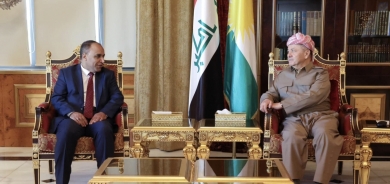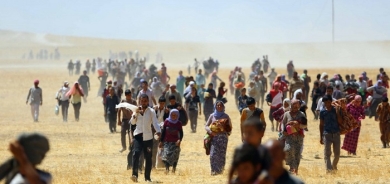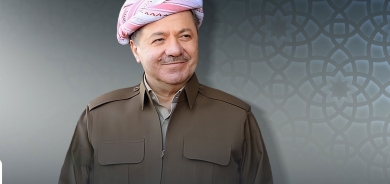TURKEY’S SYRIAN IMBROGLIO

If one seeks the reasons why the Turkish government is so adamant in shaping the future of the Syrian regime and be its “big brother” afterwards–thinking that it can both have the cake and eat it as well- there appears to be two reasons. One is the deep anxiety that the Kurds of Syria will establish a Syrian Kurdistan with the help and under the leadership of the PKK (Workers Party of Kurdistan), a Turkish militant organization that has been fighting for autonomy in Turkey. It is a pan-Kurdist outfit harbouring the grand design of bringing together different parts Kurdish populations living in Iran, Turkey, Iraq and Syria to establish the United and Greater Kurdistan. Needless to say this is the nightmare of the Turkish establishment.
The second is to help the birth of a religiously –with the belief that Sunni Muslims will be more cooperative and solidary- friendly government securing the southern flank as well as enhancing Turkey’s influence in the Muslim world. The Turkish foreign policy makers have often declared that they want to be the makers of the future of the new Middle East. Does Turkey really have the power to do so in the midst of a political theatre that is flooded with other actors with clout? Does its strategy to expand its influence beyond its borders find friendly acceptance in the neighbourhood?
It is true that Turkey’s democracy, precedence of popular rule over the military, political reforms that brought it closer to the EU and its middle-class culture building bridges between modernity and Islam were of considerable attraction to the Arab-Muslim countries. What the new rulers of Turkey did not understand is that none of these countries that were sympathetic to present day Turkey for the afore mentioned reasons want their former master coming back into their lives as the “NEW OTTOMANS”.
In the meantime Turkey was doing what was possible to bring the Assad government down “for the sake of the Syrian people”. But the Syrian people are an amalgam of religious, ethnic and political affinities. Downing of the Turkish jet plane gave a clear excuse for Turkey to activate the NATO mechanism in her favour. But a credibility problem arose when the Pentagon revealed that the Turkish jet plane Phantom shot down by Syria lately was both by Syrian anti-aircraft artillery and the incident happened off the Syrian coastline. Then the Russians stepped in by offering “undeniable radar data” to this effect. Both statements contradicted Turkey’s official thesis that could bring considerable pressure brought to bear on the troubled Syrian government. Hence Turkey’s de facto introduction of a buffer zone of four miles along the Syrian-Turkish border remains to be a one-sided act. Ankara has further reinforced its initiative by dispatching tanks, missile batteries and heavy artillery to Syrian border. Syria is now "a hostile state" for Turkey in contrast to what it was a year and half ago: a brotherly country
Turkey had adopted its policy of befriending neighbours after decades of Cold War that had alienated her from her vicinity. It was a new initiative to return to its past and cultural environment; it was called “normalization”. But now Turkey seems to be in the reverse mood.
On the 3rd of July Turkey has met with a bunch of countries to decide on the future of Syria in Geneva, Switzerland. Some the actors (like France and Britain) in the meeting were the very countries that put the Ottoman state to it death bed back in the 20thcentury. The others were the USA, China, Russia, Kuwait, Qatar, UN Secretary-General Ban Ki-moon, Arab League head Nabil El-Araby and EU foreign policy chief Catherine Ashton two weeks ago in Geneva
At the end of the meeting, the Russian envoy , Foreign Minister Sergei Lavrov was delighted to see that the signed agreement between the parties did not openly state that Syrian ruler Bashar Assad should step down. Nor did it propose a process that imposes a regime change that Moscow dislikes. Instead participant countries, including Turkey, agreed to the formation of a transitional government. This government would be composed of members of the present Syrian government and opposition elements. The primary task of the “new” government would be preparing the country for free and popular elections.
What do all these add up to is what Russia and Iran wanted all along: maintaining the Assad government and all that it affords to them in regional politics. The agreement does not even have a penalty clause for those who would jeopardise the transition process and the stability of the country.
The international jockeying observed concerning the Syrian imbroglio is an indication of the complexity of both the power structure in Syria and its regional ramifications as well as the intricate nature of foreign state interests that overlap or contradict each other. So Turkey’s claim that “we want to be party in the process of change in the Middle East,as a maker and owner (expressed in similar words by Foreign Minister Mr. Davudoğlu) of the process” is larger than life. For a country that justifies its wish into intervene as purely humanitarian, it is painful to watch the conflict nextdoor continuing as brutal repression of the opposition and suffering of innocent civilians. But that is what international politics are – more interest based than humanitarian.
This truth must be acknowledged by Turkey’s policy makers as they took part in the Geneva meetings where a quasi (second) “Balfour Declaration” was concocted concerning the fate of a country without consulting to its people. Are all Syrians opposing the regime? Or they opposed to its brutality and arbitrariness? Few people want a precarious future with an unending power struggle that with involve neighbours and distant powers with an appetite in the region.
While some of the regional states are supplying arms and vital support to opposition forces they would be vehemently opposed to a regime change in their own countries that would put an end to their rule. One such country is Turkey. By now she has learned that NATO will not go to war in Syria as long as Russia is directly (China and Iran are indirectly) involved. There will be at best a transitional government" with a weakened Assad family in charge. The USA has consented to this plan at least until the presidential elections to take place in autumn.
Given these circumstances shall we rattle our sabre and watch the opposition is minced or should we act alone? The last decision will be determinant factor whether Turkey is now power in regional politics or is strong and cohesive enough to maintain its own unity.
Prof. Dr. Doğu Ergil is a Professor of political Science in Fatih University \ Turkey, and also an expert on the Kurdish Question, and he is one of the well-known authors in Turkey.

 Doğu Ergil
Doğu Ergil






